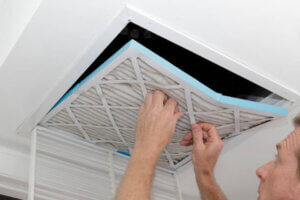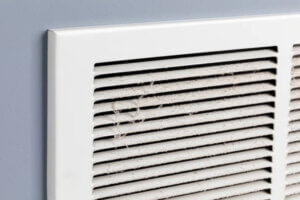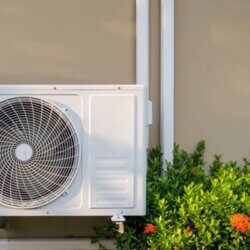
If you or a family member has seasonal allergies, paying special attention to your HVAC system can help keep allergy triggers away. Home HVAC systems not only keep your home comfortably warm or cool but also remove allergens from indoor air. But how does this air conditioning process work? How exactly does your HVAC system affect your allergies?
Over time, HVAC ducts can get clogged with dust and debris, which can affect the efficiency of your HVAC system. When this happens, your home’s humidity levels may rise and invite allergens. Additionally, the dust, pet dander, mold, and other irritants HVAC filters trap must be routinely removed so that they aren’t recirculated in your home. Replacing air filters and cleaning ducts can maintain the quality of indoor air and help allergy sufferers.
Your HVAC system can affect your allergies if it isn’t optimally designed and maintained to prevent allergies. HVAC units with certain features can help alleviate allergies, and are recommended if home occupants deal with seasonal or recurring allergies.
Talk to the experts at Galmiche & Sons for help finding the right HVAC for your home. We also clean your dirty air conditioner and provide HVAC maintenance in St. Louis, Missouri. To learn how we can help keep your system running efficiently and prevent allergy problems, call us at 314-993-1110 or get a quote for HVAC maintenance online.
How Proper HVAC Maintenance Can Prevent Allergies
What is good for your HVAC unit is good for you. The dollars spent keeping your HVAC system in good shape through regular maintenance will offer many monetary and non-monetary benefits down the line, including minimizing allergy episodes or symptoms.
- Clogged filters make your HVAC system work harder, recirculate dust and allergens in your home, and may even cause system failure. While it is generally recommended that you replace your HVAC filters every three months, how often you need to replace filters will boil down to factors like the filter type and thickness, how often you run the system, whether you keep windows open, or if you or a family member smoke in the house.
- Have your HVAC’s ducts cleaned professionally every 3-5 years. An HVAC technician will remove the pollutants that have accumulated over time. This will improve the efficiency of your HVAC and remove any smells due to mold or bacteria growth in the vents. Our friendly technician will also give you tips on improving air quality and reliable answers to questions like ‘Does your HVAC system affect your allergies?’
- High humidity can cause mold and proliferate mold spores in air, triggering allergies. It also attracts mites and insects carrying waste into your home. Low humidity (dry air) causes mold and dust to dry and makes it easier for them to get blown in the air. Regular HVAC maintenance helps maintain optimal humidity and alleviates allergies.
- Does your HVAC system affect your allergies? If you are particularly concerned about allergies, there are some things you can do to help your HVAC system better clean the air throughout your home. HVAC units with HEPA filters and UV light purifiers do a great job of cleaning indoor air. Additionally, those that have dehumidifiers can provide respite in St. Louis’s hot, sticky summers.

Contact Us to Protect Allergy Sufferers and Keep Your Indoors Comfortable and Healthy
From helping you identify an HVAC product that suits your requirements to covering your HVAC system under an affordable annual maintenance plan, we can help you maintain your indoor air quality at optimal levels and prevent allergy symptoms. To learn more, call us at 314-993-1110 or contact us online to get a quote for HVAC maintenance from our heating and air conditioning professionals.









